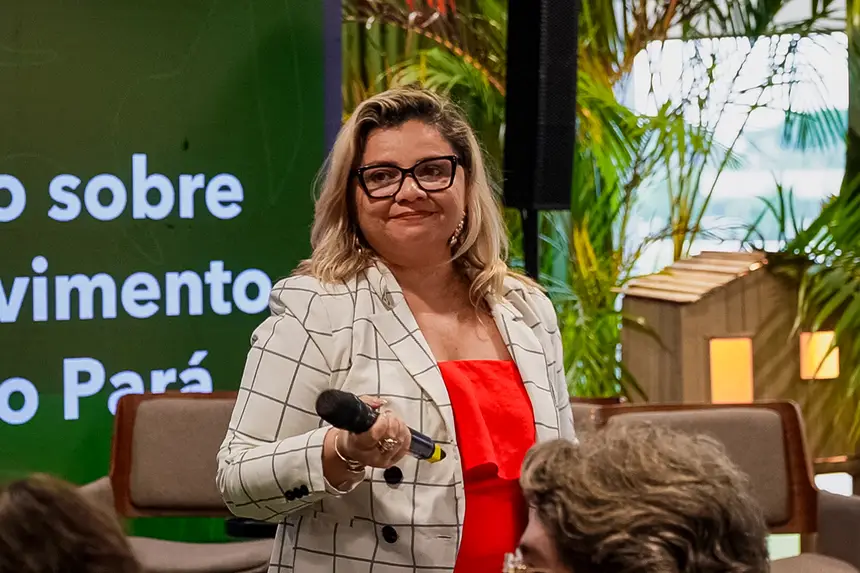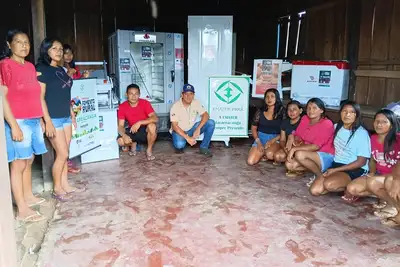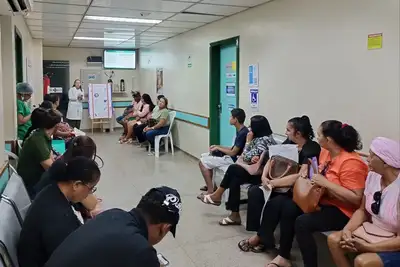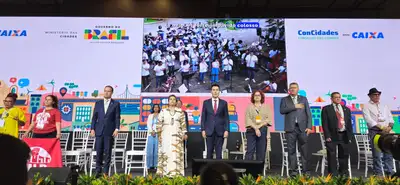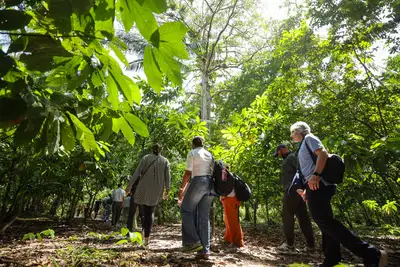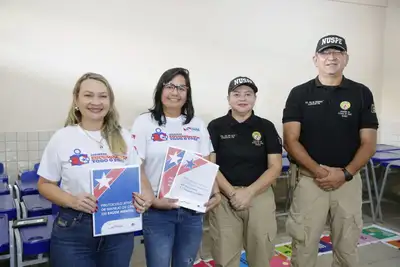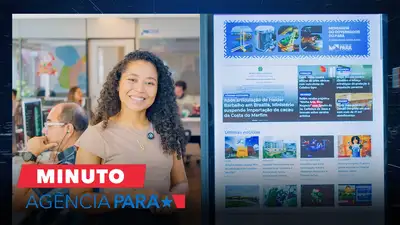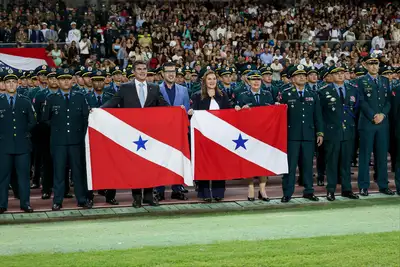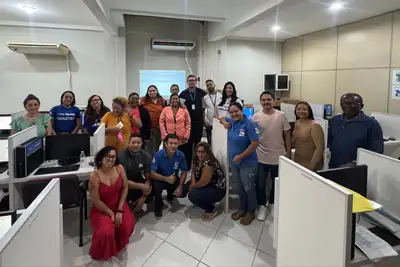Pará launches 6th Voluntary Local Report 2025 and reaffirms its leadership in the implementation of the SDGs/UN
At the Green Zone of COP30, the Government of Pará reinforces its commitment to integrated public policies focused on sustainability, social justice, and long-term development
The Government of Pará, through the State Secretariat for Planning and Administration (Seplad), launched, this Thursday (20), the 6th Voluntary Local Report (VLR) on the Sustainable Development Goals (SDGs) in the State of Pará, a document that consolidates the advances, challenges, and strategies of the government in implementing the 2030 Agenda in Pará territory. The launch took place at the Pará Pavilion, in the Green Zone, within the United Nations Conference on Climate Change (COP 30), in Belém.
The VLR 2025 is another milestone in the trajectory that Pará has been building since 2019, when it began integrating the SDGs into state public planning. The document presents updated data, strategic initiatives, and metrics that guide policies aimed at sustainable development, emphasizing the balance between economic growth, social inclusion, and environmental preservation, fundamental pillars for the Amazon.
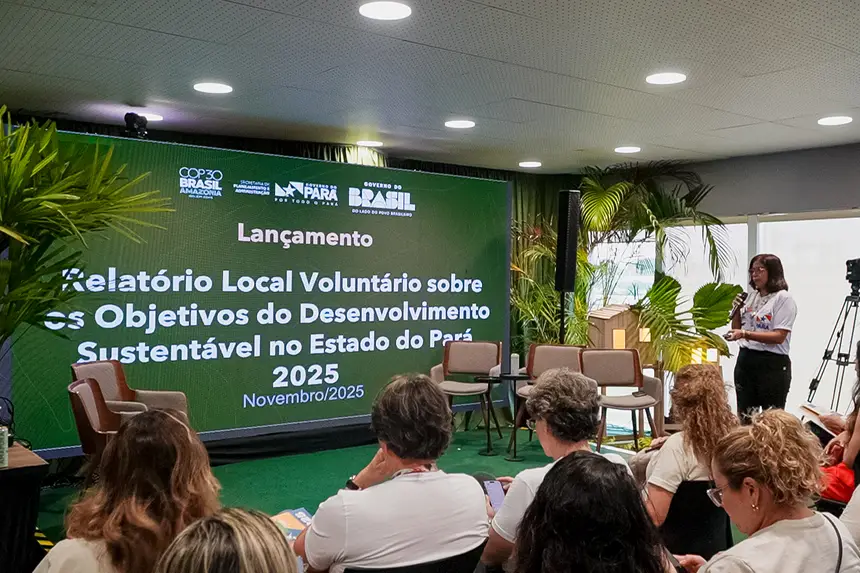
The head of Seplad, Ivaldo Ledo, highlighted the relevance of the meeting as a strategic space to reaffirm the State's commitment to the 2030 Agenda and the implementation of the Sustainable Development Goals. He emphasized that moments like this strengthen the dialogue between government, civil society, and international partners, as well as highlighting Pará's role in building integrated public policies focused on sustainability, social justice, and long-term development.
“It is with great joy that I am here representing the Government of Pará at this very important meeting, which addresses the 2030 Agenda and the Sustainable Development Goals. We know that this agenda is fundamental, as it outlines a direction, a path to be followed by all public policies and by society in general, with the aim of building a more sustainable, just, and equitable future. Since the launch of the 2030 Agenda in 2015, with its 17 SDGs, we have been working intensively on its implementation. Since I joined Seplad, I have been following this commitment, always reinforced by engaged colleagues, who show us how to align our reports and planning and budgeting instruments with the SDGs. This agenda has begun to guide us, as we believe that by following it, we will be contributing to a better world: with quality education and health, with sustainability and forest preservation. More than an institutional duty, it is a responsibility to future generations. We need to build a world with peace, prosperity, equality, and without hunger — a world where everyone can fully enjoy life. Let us preserve and act now, for the present and for the future,” emphasized the secretary.
Strategic planning for a sustainable Amazon - The report launched this year presents an updated overview of state goals, highlighting priority areas such as combating poverty and reducing inequalities; quality education and health; clean and accessible energy; sustainable work and economic development; more inclusive cities; actions for mitigation and adaptation to climate change and protection of Amazonian ecosystems.
Geovana Raiol Pires, coordinator of Economic Studies at Seplad, conducted a detailed presentation on Pará's trajectory in institutionalizing the 2030 Agenda and aligning state planning instruments with the SDGs. She contextualized the evolution of this process since 2019, highlighted the methodological and institutional advances achieved over the years, and reinforced the State's commitment to transparency, monitoring, and strengthening the governance of the Goals.
“This is our sixth Voluntary Local Report. This mission of alignment with the 2030 Agenda, this commitment, has been ongoing since 2019. When the governor was a candidate, he already included in his Government Plan that he would align his instruments with the 2030 Agenda. The technical team received the new management with this challenge of aligning our first instrument, which is prepared for each administration, which is the Multi-Year Plan (PPA). This happened in 2019. Starting in 2020, the governor was invited to participate in an event supported by the city of New York, which is the Voluntary Local Movement. And there, he not only joined the movement but also made himself available and took on the commitment that Pará, from then on, would take this step. This step is for monitoring, but it is also for transparency. Because today we have a report, we have six reports, on the Seplad website, but we also have this report available to the world on the UN (United Nations) website,” informed the coordinator.
Geovana Pires also detailed the main advances recorded over the past few years, explaining how Pará consolidated the alignment of its planning instruments and public policies with the 17 Sustainable Development Goals, including the incorporation of the newly created SDG 18, on ethnic-racial equality.
“And what does it contain? It contains all the commitment to the 2030 Agenda, this proposed alignment, which we have been working on in each report over the years. From there, we start a series of alignments of our state plans, such as the Amazon Now Plan, which until then was presented in the first local report because it was still a strategy for the plan. The first local report brings not only this alignment and institutionalization of the Agenda but also the strategies that, months later, would become the Amazon Now Plan. This report comprises the 17 SDGs. There are 18 chapters, but in SDG 17, today, you have all the goals, their indicators, and all the evolution. We made our deliveries in each SDG: as I highlighted, 'Your House' (housing public policy) in SDG 1, the Bioeconomy Plan (PlanBio) in SDG 15, among others. And then our novelty: last year, Brazil invited everyone to adhere to another SDG, which is SDG 18 on ethnic-racial equality. This year, we bring a chapter about it, informing society about what it is about. There are 10 goals being defined and, starting next year, we will begin to act in terms of delivery,” clarified Geovana Pires.
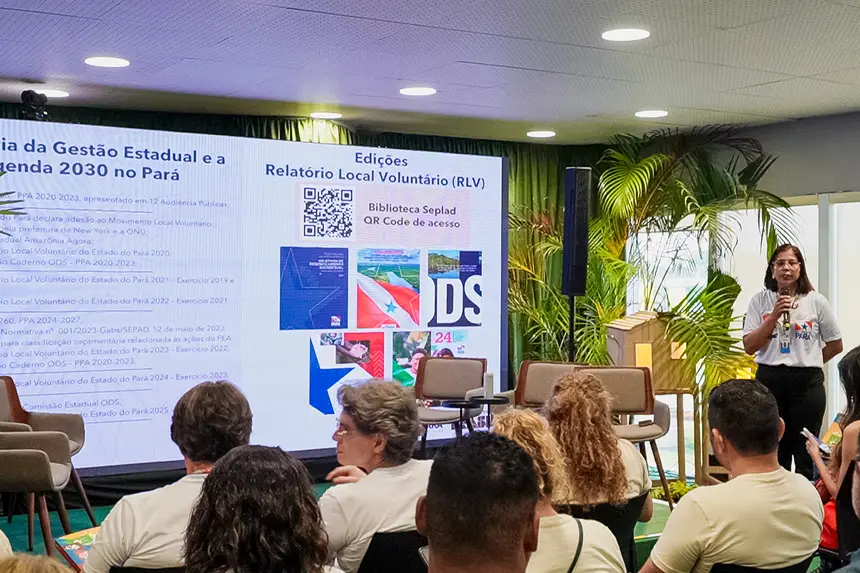
Reinforced commitment at COP30 - The presentation of the VLR 2025 occurs at a strategic moment, with Pará hosting COP30 in Belém, the first in the Amazon. The report highlights the State's role as a protagonist in the global debate on climate, sustainability, and low-emission development, positioning Pará at the center of international discussions.
To reinforce the international relevance of the work developed by Pará in implementing the Sustainable Development Goals, Kassya Nascimento, coordinator of the United Nations Development Programme (UNDP) office in the Amazon, also participated in the meeting. She highlighted the strategic role of the voluntary local report and the importance of institutional alignment to sustainable development, recognizing Pará as a national reference in consolidating the 2030 Agenda.
“Following this trajectory of the State of Pará with a focus on sustainable development has been very significant. This is the sixth voluntary report that Pará delivers to the United Nations, showing its actions and highlighting how important it is to work on each axis: education, health, environment, sustainable cities, partnerships, and all 17 SDGs. Today, we look at a report that even included the 18th SDG, created by the Brazilian government in this perspective of ethnic-racial equality, and the state government having made this effort to address ethnic-racial inequalities, a very important milestone. The delivery of the voluntary report is the conclusion of a work that the State has been developing for the implementation of the 2030 Agenda. Some steps have indeed been taken here in the State: understanding its reality, making diagnoses; planning and including the public agenda in planning instruments. We have in the example of Pará long-term planning and the PPAs with this effort to be aligned with the SDGs. It is super important that the State can see itself as an autonomous actor within this global agenda, because 65% of the SDG targets can only be achieved with the direct contribution of municipalities and states,” said Kassya Nascimento.
The program also included the online participation of Edileuza Viana de Vasconcelos, Secretary of Planning and Resource Capture of Jacareacanga, a municipality in the southwest of Pará, who shared the municipality's experience in preparing the Voluntary Local Report and strengthening the 2030 Agenda in remote territories with a significant indigenous presence. She highlighted the advances, challenges, and achievements of the municipality in this process.
Transparency, participation, and sustainable future - The State also participated in discussions focused on climate justice and the protagonism of youth in the Amazon. Representing Seplad, technical advisor Bernadete Almeida joined the panel “Local Action, Global Impact – Amazon Youth Building Climate Justice,” promoted by Humana Povo para Povo Brasil, at the Brazil Pavilion, room Atelier 03.
Bernadete Almeida emphasized that “public planning is one of the great responses to the issues we are discussing here: climate change, socio-environmental justice, bioeconomy. Planning is the central instrument where public policies are organized and structured.”
The technical advisor also highlighted that youth is already included in essential programs, such as the PPA, and reinforced the importance of active youth participation in all stages of planning, considering the regional diversity of Pará. She also emphasized youth engagement in the process of building the State of Pará's Strategic Planning - Pará 2050, stating that it is “fundamental for young people to be involved in monitoring these policies, whether at the state, municipal, or national level. We cannot accept the discourse that youth is not interested in politics. On the contrary. It is essential that they are present in all spheres.”
With the launch of the Voluntary Local Report 2025, the Government of Pará reaffirms its responsibility to advance in the implementation of the 2030 Agenda, promoting more efficient, inclusive public policies aligned with the current challenges of the Amazon.
The State continues to be a national reference in the continuous production of reports, in articulating with international organizations, and in institutionalizing sustainable practices in public planning.



